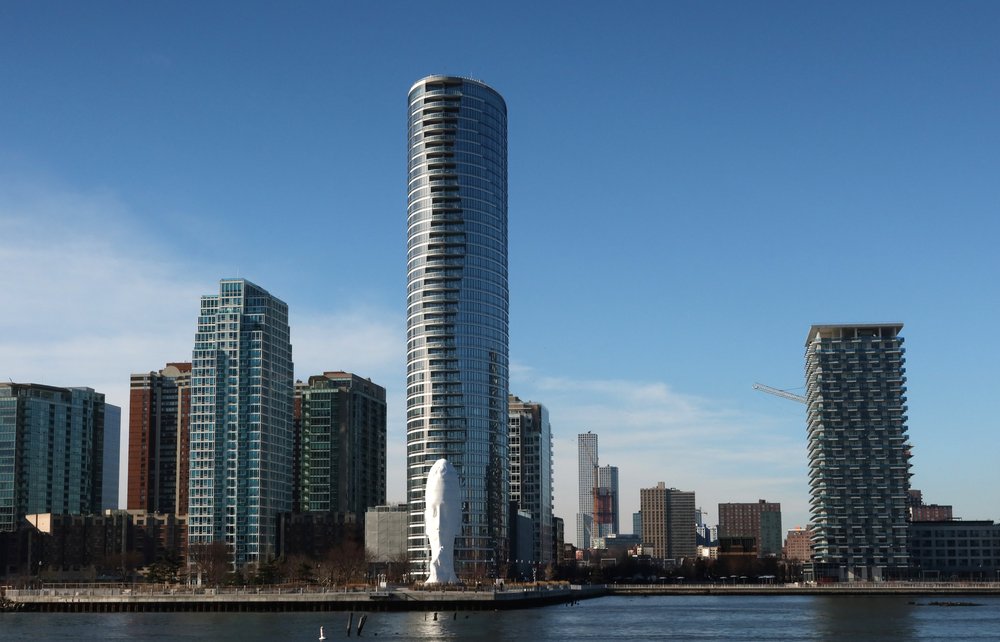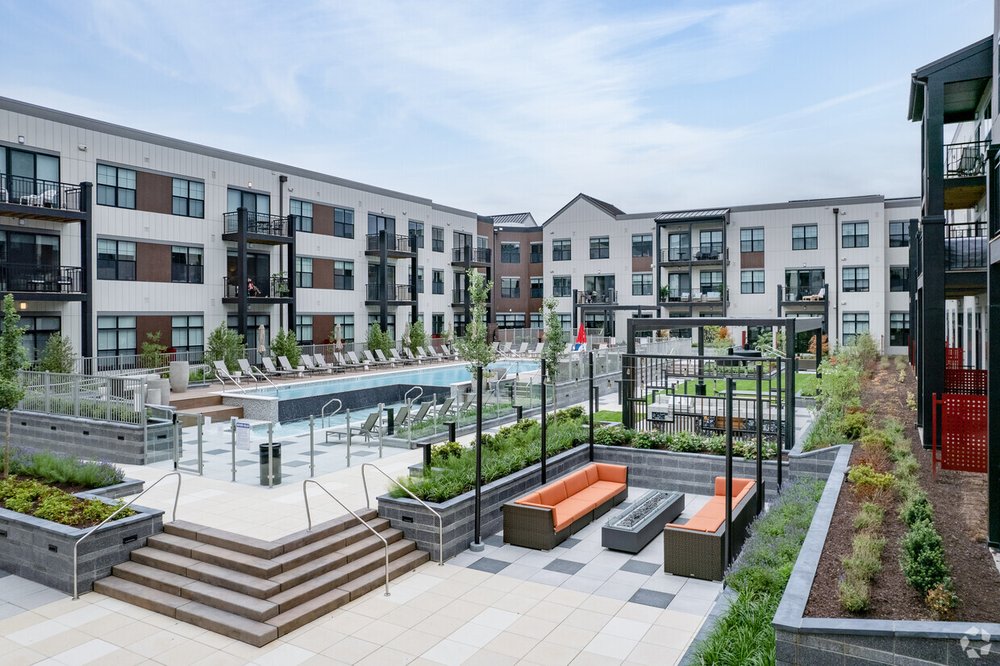NJ towns have to build affordable housing. Some mayors say they need more time.
April 6, 2024, 8:01 a.m.
Montvale Mayor Mike Ghassali said he intends to ask for a three-year pause on the construction of affordable housing in his town.

Several towns in New Jersey are sounding alarm bells about how they will build more affordable housing just months before the state is expected to announce their next housing obligations.
Montvale Mayor Mike Ghassali said he intends to ask for a three-year pause on the construction of affordable housing in his town.
“Let us just breathe and assess before we start building more,” he said, noting that he wants to see how recently and soon-to-be completed projects will affect factors such as school attendance, traffic and water pressure.
Every town in New Jersey is legally required to develop its "fair share" of affordable homes under what’s known as the Mount Laurel Doctrine. The state has tackled this by telling each municipality how many homes it must build in a fixed time period, known as a "round." New Jersey will enter its fourth round in July 2025, which will run for 10 years.
A pause like the one Ghassali said he plans to request is not a formal option available to towns within New Jersey’s affordable housing process. In fact, delaying the process could open a town up to potential lawsuits from developers and housing advocates.

A new law signed by Gov. Murphy last month aims to streamline the negotiation process between towns and state over affordable housing. And lawmakers and advocates backing it hope that New Jersey can avoid some of the contentious battles over affordable housing that have occurred over the years.
But less than a month after the new law was signed, some town officials are raising issues that suggest New Jersey may not get the smooth affordable housing process that they are hoping for.
Officials from two other towns told Gothamist they also like the idea of a pause to be able to finish ongoing housing projects and assess their impacts on the community. But advocates and state lawmakers said this is a nonstarter for them.
Assemblymember Yvonne Lopez, who was a key sponsor of a new state bill that will set the guidelines for affordable housing moving forward, said a pause would “only complicate the process.”
“Considering that our state is facing a substantial shortage of affordable housing properties, a pause initiated by municipalities would only serve to worsen the shortage we are experiencing,” she said.
A long-standing problem of affordable housing
Affordable housing in New Jersey is notoriously scarce. State officials and housing advocates estimate New Jersey still needs another 200,000 rental units statewide for lower-income residents.
Ghassali says that Montvale has fulfilled its obligation from the first three rounds. Some of the affordable housing projects that have been taken on in Montvale include the redevelopment of former Mercedes-Benz and Sony office space into housing. In total, once construction is complete on some ongoing projects, Montvale will have built 365 affordable units over about 12 years, he said.
But Ghassali said that his town faces a multipart problem moving forward. Along with the ongoing work to complete some projects, he said the town is still on the hook for 200 more units from prior rounds – even though the state has acknowledged that Montvale does not have the vacant land to build them.
“It's chaotic. It's nuts,” Ghassali said, adding that he intends to ask for a pause to start new affordable housing development in the town when it receives its number for the next round.
Ghassali acknowledged that there is no mechanism in the bill for a pause that he is suggesting and that Montvale would have to take its request to the courts if it moves forward.
State Sen. Troy Singleton, the new law's key sponsor, confirmed that there is nothing within the law to pause the process – and by doing so, towns could face consequences.
“Towns are required to complete the affordable housing planning process, and the fulfillment of their obligations, within the clearly established deadlines,” he said.
He noted that if they fail to do so, they risk losing their immunity from being sued by developers or housing advocates over exclusionary zoning.
Some mayors favor a pause
Madison Mayor Bob Conley said he likes the idea of towns being able to pause the start of new development so long it's used to assess the impact of what’s been done and not to just “kick the can down the road” on their obligations.
“I'm supportive of the pause as long as it's not a blanket pause that we can sit back on our hands for the next three years,” he said.
Like Montvale, Conley said the town of Madison is caught up on its obligations but still has to complete work from the prior round. He said the pandemic and higher building costs have delayed projects. Madison is also working through litigation with Drew University, which resides in Madison and challenged the town’s affordable housing settlement because it didn’t include property the school is looking to sell as a possible site for development in its plan.
Conley said he thought a pause could allow stakeholders to suggest possible revisions to the bill, but added that he supports the new law.
“What's good about this new legislation is it sets up guidelines.” He said. “It’s much easier to play the game when you know the rules.”
A new affordable housing process
The most substantial change to the process in the new bill involves the Department of Community Affairs. Moving forward, the agency will be responsible for calculating each town’s affordable housing obligations and working with them to come up with a plan. Previously, town officials went through this negotiating process in court, which many say was costly and time-consuming.
Lisa Ryan, spokesperson for the Department of Community Affairs, said that the agency “fully expects to publish the fourth-round obligation figures in advance of the Oct. 20, 2024 deadline” laid out in the bill.
Ryan said DCA has collected the necessary data to determine municipal affordable housing obligations for the fourth round and is in the process of analyzing it. She said the department are also developing a new tracking system for the agency and towns to utilize.
“We will continue to work closely with our stakeholder partners, including mayors and Fair Share Housing Center, to ensure smooth implementation of the new law,” she said.
Jocelyn Mathiasen, president of the Chatham Borough Council, said she would also support a pause that gets officials and legislators “around the table working together.”
In particular, she said she’d like to see stakeholders consider changing the timetable laid out in the current bill where towns receive their obligations this fall then have to come up with plans by the end of June 2025.
“The idea of a massive change to your community, trying to get through that in less than a year, it's just insane,” she said.
NJ lawmakers pass bill to get more affordable housing near transit, grocery stores Dozens evacuate damaged Newark row homes after earthquake hits NYC, NJ